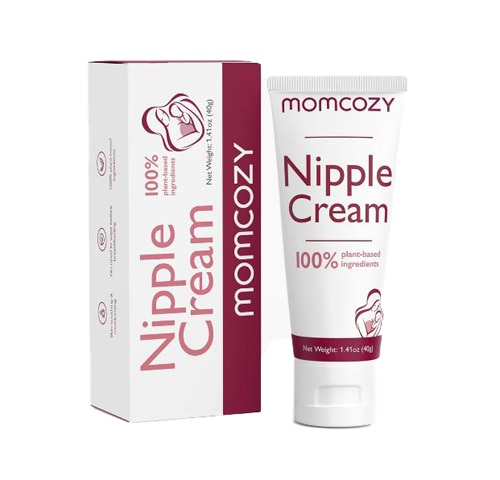[vc_row][vc_column][vc_column_text]
Breastfeeding offers your baby essential nutrients crucial for their growth and development. To ensure your baby receives optimal nutrition, it’s vital for breastfeeding mothers to maintain a well-balanced diet. A healthy diet not only supports milk production but also boosts your energy levels, contributing to higher-quality milk. What you eat can greatly impact your milk supply.
Additionally, breastfed babies benefit from a reduced risk of many infections, allergies and sudden infant death syndrome (SIDS), along with improved neurodevelopment and lower mortality rates. The high insulin content in breast milk may also lower the risk of type 1 diabetes in infants.

What constitutes a well-balanced diet?
A
well-balanced diet is rich in vitamins, minerals, high-fiber carbohydrates, lean proteins, nourishing fats and hydration. Since breastfeeding increases your caloric needs by approximately 340-400 calories per day, focusing on nutrient-dense foods is crucial for meeting your energy needs and supporting milk production.
Key nutrients in a breastfeeding diet
Protein: Essential for muscle repair and satiety, protein also supports recovery and milk production. Include lean sources like chicken, turkey, eggs, tofu, seitan,
beans, tempeh and
lentils to nourish your body and provide the best for your growing baby.
Omega-3 fatty acids: These "healthy fats" are vital for heart health, brain function and your baby’s brain development. Aim for at least two servings of fish per week (about 6-8 ounces) as recommended by the American Heart Association. Include other sources like edamame,
flax seeds, chia seeds, soybean oil and
walnuts. Be cautious with high-mercury fish like king mackerel, marlin, shark, swordfish, tilefish, bigeye tuna, perch, largemouth bass and catfish.
Vitamin D: Crucial for bone health, vitamin D can be especially important during fall and winter months. Babies do not get enough vitamin D naturally through breast milk so supplementation is crucial. Consider supplementation if you’re pregnant or breastfeeding.
Calcium: Replenish
calcium as your baby draws it from your body. Aim for around 1,000 milligrams daily through leafy greens, nuts, fortified plant-based milks and dairy products.
Iron: Combat fatigue and maintain energy levels with
iron-rich foods such as spinach, beans, meats, eggs and fortified cereals. Enhance iron absorption by pairing these with Vitamin C-rich foods like peppers and citrus fruits.
Supporting healthy milk production
Incorporate galactagogues, or foods known to enhance milk supply, into your diet. Key options include:
Oats: Rich in fiber and iron, oats support healthy lactation and milk production. Check out some tasty
carrot cake overnight oats to pair great with your fall menu.
Garlic: Garlic potentially boosts milk production but may alter breast milk’s flavor. Monitor your baby’s reaction. Spaghetti squash is just about in season. This
garlic spaghetti squash dish is a great to combine the fall and benefits of garlic all into one.
Leafy greens: Spinach, kale and broccoli are loaded with iron, calcium and folate, aiding milk supply. Interested in learning more about leafy greens?
This article will provide you with a wealth of information!
Nuts: Cashews,
almonds and other nuts provide protein and healthy fats beneficial for milk production and are great as snacks or meal additions. Interested in combining both the nutrition of nuts and garlic together? Try out
this recipe for delicious flavors.
Lactation cookies/snacks: Often made with
brewer’s yeast, flax seeds, and oats, these treats are designed to support lactation. Looking for a little sweet fix?
These cookies will provide you with not only that but also a balance of oats, brewer yeast, hemp seeds and flax seeds.
Vitamins and minerals
During the first year after birth, include iodine and choline in your diet to support overall health.
- Iodine sources: Iodized salt, dairy products, eggs and seafood.
- Choline sources: Legumes (peas, lentils, beans), seafood, meats, eggs and dairy products.
Hydration
Proper
hydration is essential while breastfeeding, as your fluid needs increase to support milk production. Breastfeeding mothers need close to 16 cups of water per day. This can come from foods, water itself and other beverages. Aim for a large glass of water every time you breastfeed to keep yourself and your milk supply well-hydrated.
How much caffeine is OK?
Caffeine lover? Caffeine does transfer to breast milk in small amounts but generally doesn’t impact your baby when consumed in moderation. Looking to optimize your breast milk supply and enjoy some caffeine at the same time? Limit intake to about 300 milligrams per day, equivalent to 2-3 cups of coffee. Check out some
of these tasty caffeine-free beverages.
Alcohol and breastfeeding
Alcohol is always a big topic that comes up. It’s important to discuss this with your provider. Avoiding alcohol is always the safest but it has been shown to be safe to consume moderate amounts of alcohol. What does this look like? A moderate amount is defined as
one serving of alcohol/day.
Plant-based diets and breastfeeding
A plant-based diet can still meet all your nutritional needs, though you may need to supplement with vitamin B-12 and iron. Low vitamin B-12 levels can affect your baby’s neurological development. Sources include nutritional yeast, fortified plant-based milks, fortified cereals, seaweed and fortified meat substitutes.
More ways to support a healthy breastfeeding diet
Be mindful of baby’s sensitivities: Observe how your baby responds to different foods you eat, as they might react to certain items.
Easy meal prep: Batch-cook and freeze meals to ensure you always have nutritious options available.
Nutritious smoothies: Blend fruits, veggies, protein and healthy fats like pepitas or chia seeds for a convenient, nutrient-dense meal or snack.
Smart snacking: Choose snacks that combine protein and produce, such as nuts with fruit, yogurt with berries, hummus with veggies, or a cheese stick with whole-grain crackers.
Personalized nutrition: Each breastfeeding journey is unique. Tailor your diet to your individual needs and consult with healthcare providers for personalized advice to ensure you and your baby get the best start in life.
A breastfeeding diet looks different to each and every person. Consider checking in and reviewing your diet if you have any questions or concerns with a medical professional such as a dietitian, healthcare provider or lactation consultant. They can assist you with the proper tools that are needed.[/vc_column_text][/vc_column][/vc_row][vc_row][vc_column][vc_text_separator title="Featured Products" border_width="2"][vc_row_inner equal_height="yes" content_placement="middle" gap="35"][vc_column_inner width="1/3"][vc_single_image image="178672" img_size="full" alignment="center" onclick="custom_link" img_link_target="_blank" css=".vc_custom_1728505790027{padding-right: 7% !important;padding-left: 7% !important;}" link="https://www.vitacost.com/earth-mama-organic-milkmaid-tea"][/vc_column_inner][vc_column_inner width="1/3"][vc_single_image image="178671" img_size="full" alignment="center" onclick="custom_link" img_link_target="_blank" css=".vc_custom_1728505803827{padding-right: 7% !important;padding-left: 7% !important;}" link="https://www.vitacost.com/gaia-herbs-lactation-support"][/vc_column_inner][vc_column_inner width="1/3"][vc_single_image image="178670" img_size="full" alignment="center" onclick="custom_link" img_link_target="_blank" css=".vc_custom_1728505817507{padding-right: 7% !important;padding-left: 7% !important;}" link="https://www.vitacost.com/zahler-postnatalflow"][/vc_column_inner][/vc_row_inner][/vc_column][/vc_row]




